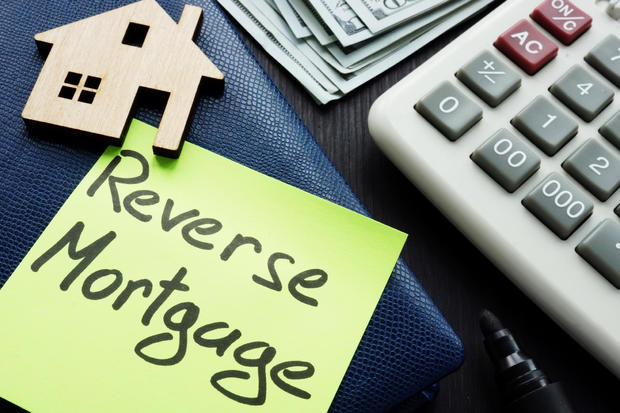4 ways a reverse mortgage can help you
A reverse mortgage is a type of loan that pays you. Unlike a traditional mortgage, which requires you to make payments each month, with a reverse mortgage, you're the one who gets paid — either with a one-time sum, monthly payments, a line of credit or some combination of these approaches.
Reverse mortgages are only for seniors — homeowners who are 62 and older. If you're in this age range, you might consider one of these loans, particularly if you're looking for extra income or to eliminate monthly housing costs in retirement.
Reverse mortgages, while often beneficial, however, aren't right for everyone. You'll want to consider your personal financial situation, goals and other factors to confirm that these loans are a good fit.
To determine if a reverse mortgage is right for you, speak with an expert who can help guide you.
Are you thinking of taking out a reverse mortgage? Here are four advantages one may offer you.
1. You get extra cash to use how you like
The biggest benefit of a reverse mortgage is that it gives you access to a large amount of cash that you can use for any purpose. You can put the funds toward everyday living expenses, a trip, paying off debts, investing or achieving any other financial goal you might have.
It can also act as supplemental income — particularly if you choose monthly payments. These can be a great way to offset any loss in earnings you experience when you retire.
2. It reduces your monthly expenses
If you still have a balance on your mortgage, you'll need to use your reverse mortgage funds to pay that off first. While doing so will reduce the total amount of funds you can access, it also comes with a huge perk: You no longer have a monthly payment.
This, combined with the extra income you get from your reverse mortgage payments, can make retirement significantly more comfortable.
If this sounds like something that you could benefit from, contact an expert now who can help you access your equity.
3. You get to stay in your home
Selling your house or downsizing is one way to access your home equity in retirement, but not everyone is willing — or even able — to move. If you'd prefer to keep your home and age in place, a reverse mortgage can be a smart alternative.
With these loans, you can stay in your home while also turning your home equity into cash. If needed, you can use those funds to pay for modifications to accommodate things like walkers, wheelchairs or other assistive devices.
4. You won't owe extra taxes
Though reverse mortgage payments can often feel like extra income, they aren't taxed like it. In fact, the IRS actually says reverse mortgage funds are loan proceeds, so you won't owe taxes on any payments you receive. This is just another way they can help you keep expenses low in retirement.
Do your homework
There are downsides to reverse mortgages, too. For one, they put your home at risk. If you're unable to stay up to date on your property taxes and home insurance, the lender could foreclose on your house.
Reverse mortgages also may complicate things for your heirs after your death. Your heirs will either need to repay your balance or sell the home to pay off the debt.
Still, if you need cash or want to increase your monthly income in a secure and reliable way, reverse mortgages can be helpful.
If you're still not sure if a reverse mortgage is a smart financial move, get in touch with a mortgage professional. They can clearly explain the benefits and help steer you in the right direction.
Consider cash-out refinancing as an alternative
If a reverse mortgage doesn't sound beneficial for your individual circumstances then look into cash-out refinancing as an alternative. Unlike a reverse mortgage, this option is available for homeowners of all ages.
This is how it works: you take out a new home loan for an amount larger than what you owe on your current loan. You then use the new loan to pay off the old one and take the difference between the two as cash.
Cash-out refinancing has many advantages. You can use the funds for anything, and there are also tax benefits (you can deduct the interest you pay from your taxable income). You'll usually get a lower interest rate than you would on other financing products, like credit cards or personal loans, too.
If interested, reach out to a mortgage refinance expert who can advise you.




